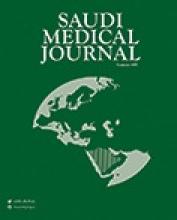To the Editor
A recent study by Jang and Park1 demonstrated how medical student’s personality traits related to collaborative performance during problem-based learning (PBL) tutorials. The authors stated that independent medical students tend to complete assigned independent work successfully to prepare for PBL tutorials. It seems to have found the most suitable method by a comprehensive literature search, although it is difficult to classify an individual’s personality traits, measure them, and assess their impacts on academic performance. The Korean version of the Temperament and Character Inventory-Revised short version used for this study has a high Cronbach’s alpha value, and has been suggested to be reliable in previous studies.2,3 However, in order to better understand the results, we would like to ask you a few questions. First, ‘peer assessment’ was the main method used to evaluate collaboration performance. The authors’ state that peer evaluation of medical students can be performed in a valid way, but no reference was provided. Furthermore, even if the authors regarded previous research studies as reliable, they may have been performed on Caucasians, and it should be borne in mind that Asians tend to more extend courtesy to colleagues or friends, and thus, are more likely not to underestimate colleague’s scores. Second, it would appear that the authors expected the results obtained to allow guidance and support to be given to students with poor cooperative skills or poor grades during PBL activities. However, we wonder whether readers could practically apply the results obtained. For example, if a student with a high reward dependency cannot always be promised a reward, and if a student has low cooperative competency, then how can we change his/her personality? In addition, students with a social segregation temperament were found to prepare for cooperative learning well, but the explanation that such students had considerable time to prepare for the task is too simple; more detailed explanations are required. Third, cooperativeness and collaborative learning were not found to be related in the present study, which is contrary to expectation based on common sense. Other studies have reported similar consequences, but as yet, no explanation has been proposed. As they already know, PBL is a means of cooperative learning. Fourth, ideally, a student who has faithfully attended PBL classes has studied hard has received a higher grade-point average (GPA). As authors pointed out, students with high GPA lack sincerity during PBL. Therefore, we suggest it may be a solution to include learning attitude meaningfully in the components of the GPA. Strictly speaking, a student with a good GPA means he or she can be somewhat selfish.
Finally, we wonder if the personalities of students entering medical schools are representative of all personality types, for example; students with specific natures are unlikely to be admitted to medical schools. We would appreciate your comments regarding the above as they would aid our understanding of your excellent manuscript.
Reply from the Author
We would like to thank Dr. Lee for his interest in our study and his valuable comments. We acknowledge the limitations in the use of peer assessment that Dr. Lee noted. There have been many studies that documented the reliability and validity of peer assessment,4-7 and we cited 2 in this study.8,9 The peer assessment tool used in our study was developed based on domains of tutorial performance extensively reported in PBL literature. As Dr. Lee noted, previous studies have been conducted with Caucasian students. In such studies, Caucasian students also overestimated their peers’ performance while their ratings of peers still correlated with tutor ratings.
We did not intend to imply a change in students’ personalities adapted for collaborative learning. Acknowledging that one’s personality is not something that is readily changeable, educational researchers studying personalities focus on arranging the learning environment that best works for certain personalities and contributes to improving one’s performance. In the case of our study, by understanding personality issues of student difficulties in collaborative learning, an instructor can adjust the learning environment to appropriately meet the needs of students and promote collaborative learning. For example, if many of the struggling students are reward-dependent, an instructor may consider providing a reward for completing self-study. On the other hand, medical students low in reward dependence, or students with social detachment, are more likely to devote their time to self-study independent of a reward (because medical students have high achievement motivation in general).
As noted in the Discussion section, we struggled for understanding the lack of relationship between collaborative learning and cooperativeness found in the study. One possible explanation is that cooperativeness may not be a personality character that directly contributes to successful completion of collaborative activities of PBL. Although activities in PBL require interacting and negotiating with others, they are concerned with problems that are less debatable, unlike value-driven problems with no definite answers. As such, being considerate and empathetic may not necessarily benefit collaborative learning in PBL.
As Dr. Lee suggested, we acknowledge that assessing students’ attitude during PBL is a possible solution for ensuring credit for faithful students. Although our study found that personality associated with collaborative learning was not related to GPA, it is still possible that students with high collaborative performance receive a high GPA. Meaningful inclusion of students’ attitude in components of GPA may well enhance such association between collaborative performance and GPA.
Last, we agree that students with certain personality types have entered the medical school. Nevertheless, we intend to study medical students and their personalities associated with collaborative performance.
Seung W. Park
Institute for Teaching and Learning, DaeJeon University, DaeJeon, South Korea
- Copyright: © Saudi Medical Journal
This is an open-access article distributed under the terms of the Creative Commons Attribution-Noncommercial-Share Alike 3.0 Unported, which permits unrestricted use, distribution, and reproduction in any medium, provided the original work is properly cited.






